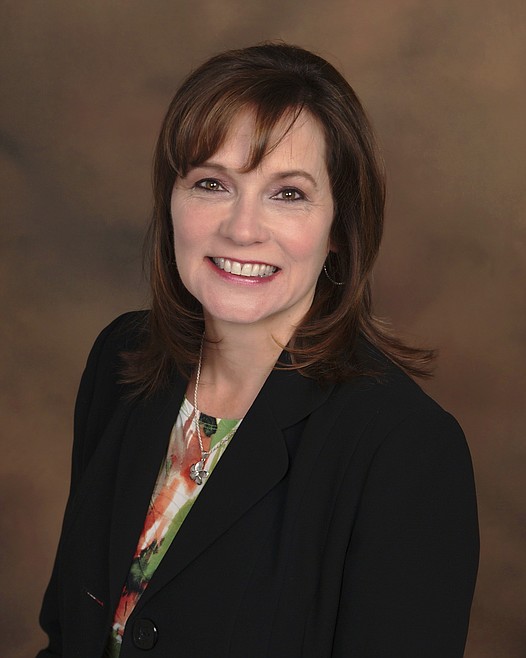Cleverly disguised games on Facebook
When poking around on Facebook, be careful of innocent looking games which appear to be posted by friends claiming to want to get to know you better.
I recently came across a game posted by a Facebook friend that was asking for answers to about 20 questions. The questions included: what was the make and model of your first car, what was your childhood best friend’s name, what is your oldest sibling’s middle name and what was the name of your first grade teacher, just to name a few.
If these questions look familiar, they should. These are the security questions used to identify you when setting up banking, credit cards or retirement accounts.
In reality, what makes these such good security questions is that they typically would not show up in normal conversation with anyone.
For example, when was the last time you thought to ask someone the name of their first grade teacher? These are great questions for security purposes because of their obscurity. If you think about it, the questions themselves really don’t tell anyone that much about us, which is supposedly the purpose of the game.
So you might be wondering why this “game” is on Facebook. It's simple: This type of game wants your security answers.
Cybersecurity experts say hackers are targeting and then scrubbing data from users' social media accounts so they can hack into accounts. Some people might think, who has time to do that? Scammers do. Scamming people out of their money is big business for crooks; think of it as their full-time job.
Don’t be your own worst enemy — don’t play the game.
• • •
HOA special assessments
If you own a condo or townhouse, you probably are part of a homeowner’s association (HOA). When you purchased your property you agreed to the rules of the HOA, which likely included agreeing to pay special assessments as prescribed by the HOA.
Is there anything you can do to protect yourself against a large special assessment? Contact your insurance agent and inquire if you have loss assessment coverage and in what amount.
Though special assessments are most common in condos and townhomes, single-family homes in an HOA community may also be subject to special assessments, though higher assessments would be more likely with condos and townhomes since they usually have more common areas and the HOA covers exterior structures.
Another item to pay careful attention to with loss-assessment coverage is how coverage extends to events that occurred prior to the policy inception date.
For example, suppose a hail storm caused severe roof damage that took months of negotiating to resolve with the resolution involving owners paying a special assessment. If you purchased your property before the final assessment, some insurers may refuse the claim since it occurred before your policy took effect. Read your policy carefully and make sure you understand its terms so you don’t get caught unaware.
Special assessments may become more common based on a story I heard from a colleague in Colorado. Because they have frequent hail and other weather-related events, many HOA property insurers have increased deductibles for such events to very high levels.
So, when a large loss event occurs and a large deductible has to be paid, it may result in large special assessments if the HOA does not have excess funds to cover the unexpected expense.
Bottom line is make sure you understand how these expenses may affect you.
• • •
Dishing up this scam
AARP has started reporting about a new hot dish that has crooks stealing credentials for accounts such as Grubhub, DoorDash and Uber Eats.
During the pandemic, consumers have turned to grocery delivery services and dinner drop-offs at their doors. Of course, this means thieves are all too eager to grab your delivery account credentials so they can eat, too.
Scammers know that if they use a legitimate user’s account information, it will increase their chance at a free meal.
With the increase in food delivery services, this category now accounts for 18 percent of all the identity frauds accessing non-financial accounts. It surpasses other accounts that are compromised such as mobile phones, social media platforms, emails and utilities.
Be aware that most delivery app credentials allow anyone with a username and password to order items that will be automatically charged to the account. If you have a delivery account, you'll want to regularly make sure there are no orders you didn’t make and make sure that if an app offers notifications when you order, those features are turned on and active.
Never provide your username or password via text or email. Make sure when you're ordering food that you're on the correct website.
Also, if you receive texts, calls or emails about missed deliveries and you haven’t ordered anything, this could mean someone else is using your account. Protect yourself by going to your account directly to check it out.
• • •
Remember: I’m on your side.
• • •
If you have encountered a consumer issue that you have questions about or think our readers should know about, please send me an email at terridickersonadvocate@gmail.com or call me at 208-274-4458. As The CDA Press Consumer Gal, I’m here to help. I’m a copywriter working with businesses on marketing strategy, a columnist, a veterans advocate and a consumer advocate living in Coeur d’Alene.

